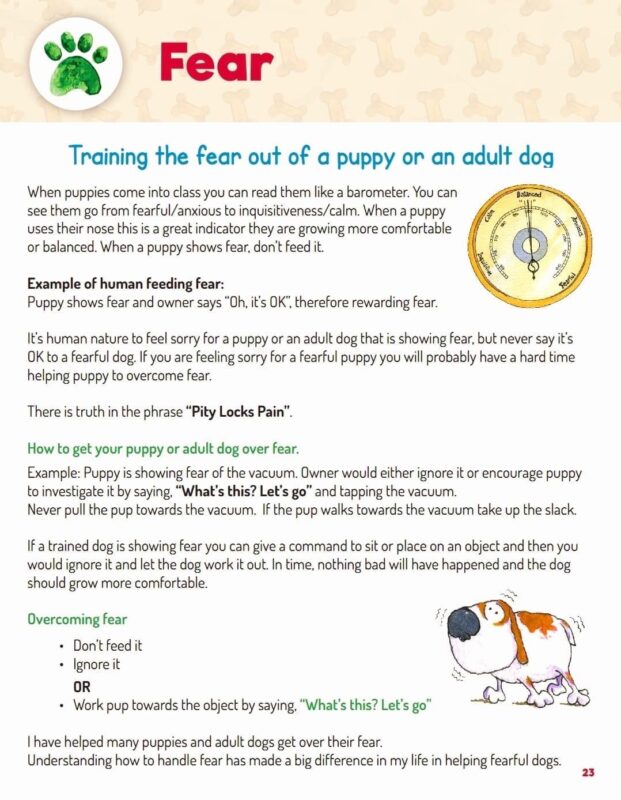counter-conditioning and desensitization, dog fears, Dog Training Myths, Uncategorized
Dispelling the Myth: Feeding a Scared Dog Will Not Make It Worse
Dispelling the Myth: Feeding a Scared Dog Will Not Make It Worse by Will Bangura, M.S., CBCC-KA, CPDT-KA, (Dog Behaviorist), Certified Behavior Consultant.
As a Certified Behavior Consultant and Certified Professional Dog Trainer, it is essential to dispel myths and misconceptions about dog behavior and training. One of the most persistent and harmful myths is that feeding a scared dog worsens it. This myth is false and can lead to unnecessary suffering for fearful dogs. It is time to set the record straight and provide evidence-based information to help dogs and their owners.
Have you ever heard a dog trainer say, “Feeding a scared dog will make it worse?” In fact, feeding a scared dog can be an effective way to help it overcome its fears. This is because food is a powerful motivator for dogs and can be used to change their emotional response to fear-inducing stimuli. Feeding a scared dog can help it associate positive emotions with what previously caused fear.
I stumbled across this graphic on a social media post. I later learned this is a page in a published book. There is no truth to this graphic whatsoever. It is scary to think anyone can call themselves a dog trainer and publish a book saying anything, even if there is no basis in reality, fact, or science. So let’s set the record straight.
BEWARE OF OFFICIAL-LOOKING GRAPHICS OR STATEMENTS THAT HAVE NO BASIS IN SCIENCE
THIS IS COMPLETELY FALSE
Above
A well-intentioned dog trainer wrote this with no formal education in behavior. A dog trainer that has not undergone any formal certification process to validate that they know what they are talking about and know what they are doing. The trainer posted this on Facebook, and everyone thought it was fantastic and sang its praises. There is only one problem, none of it is true!
Feeding a scared dog is an example of counter-conditioning.
Feeding a scared dog is an example of counter-conditioning, a technique used in dog training to change a dog’s emotional response to a particular stimulus. Counter-conditioning involves pairing the fear-inducing stimulus with something the dog enjoys, such as food, to change the dog’s emotional response from fear to happiness. This is a scientifically validated method that is effective in changing the emotional response of dogs to fear-inducing stimuli.
Fear is an emotional response, not a behavior, and therefore cannot be reinforced by feeding a dog when fearful.
It is also essential to note that feeding a scared dog does not reinforce fear. Reinforcement refers to the strengthening of behavior through a reward or punishment. Fear is an emotional response, not a behavior, and therefore cannot be reinforced. By feeding a scared dog, we are not reinforcing the fear but changing the emotional response.
However, it is important to note that counter-conditioning is not a magic solution. It is a slow and gradual process that requires patience and consistency. Working with a Professional Behavior Consultant with experience in counter-conditioning and desensitization techniques is essential.
When looking for a dog trainer, it is crucial to research their education and certification.
When looking for a dog trainer, it is crucial to research their education and certification. Formal college-level and graduate-level education in psychology and behavior can provide a deeper understanding of dog behavior and learning. Certification from reputable organizations such as the Certification Council for Professional Dog Trainers (CCPDT) and the International Association of Animal Behavior Consultants (IAABC) can demonstrate the trainer’s competence in using evidence-based and science-based methods. Unfortunately, dog training is an unregulated industry, and there are a lot of well-intentioned ideas out there that have no basis in science, are not backed up by research, and are not based on empirical evidence.
Evidence-based and science-based methods are critical to avoid myths and misconceptions about dog behavior and training.
Evidence-based and science-based methods are critical to avoid myths and misconceptions about dog behavior and training. Many well-intentioned, uneducated, uncertified trainers propagate harmful and outdated myths that can lead to unnecessary suffering for dogs. Owners can ensure their dogs receive the best possible care and training by working with a certified professional using evidence-based and science-based methods.
-
Fact: Feeding a scared dog can be an effective way to help it overcome its fears.
Citation: https://www.akc.org/expert-advice/training/how-to-train-fearful-dog/
-
Fact: Counter-conditioning is a scientifically validated method that has been shown to be effective in changing the emotional response of dogs to fear-inducing stimuli.
Citation: https://www.dutch.com/blogs/dogs/counterconditioning-desensitization
-
Fact: Reinforcement refers to the strengthening of a behavior through a reward or punishment.
Citation: https://positivepsychology.com/positive-reinforcement-psychology/
-
Fact: Fear is an emotional response, not a behavior, and therefore cannot be reinforced.
-
Fact: It is important to work with a professional Certified Behavior Consultant or Behaviorist with experience in counter-conditioning and desensitization techniques.
Citation: https://assisianimalhealth.com/library/dog-behavior-modification/
-
Fact: Certification from reputable organizations such as the Certification Council for Professional Dog Trainers (CCPDT) and the International Association of Animal Behavior Consultants (IAABC) can demonstrate the trainer’s competence in using evidence-based and science-based methods.
Citation: https://www.howmanydogs.com/2018/05/false-positive-certification-for-dog-trainers/
Feeding a scared dog will not worsen it.
In conclusion, feeding a scared dog will not worsen it, and it can be an effective way to help it overcome its fears. Counter-conditioning is a scientifically validated method that changes dogs’ emotional responses to fear-inducing stimuli. When looking for a dog trainer, it is crucial to research their education and certification to ensure they use evidence-based and science-based methods. By doing so, owners can ensure that their dogs receive the best possible care and training, and harmful myths about dog behavior and training can be dispelled.



